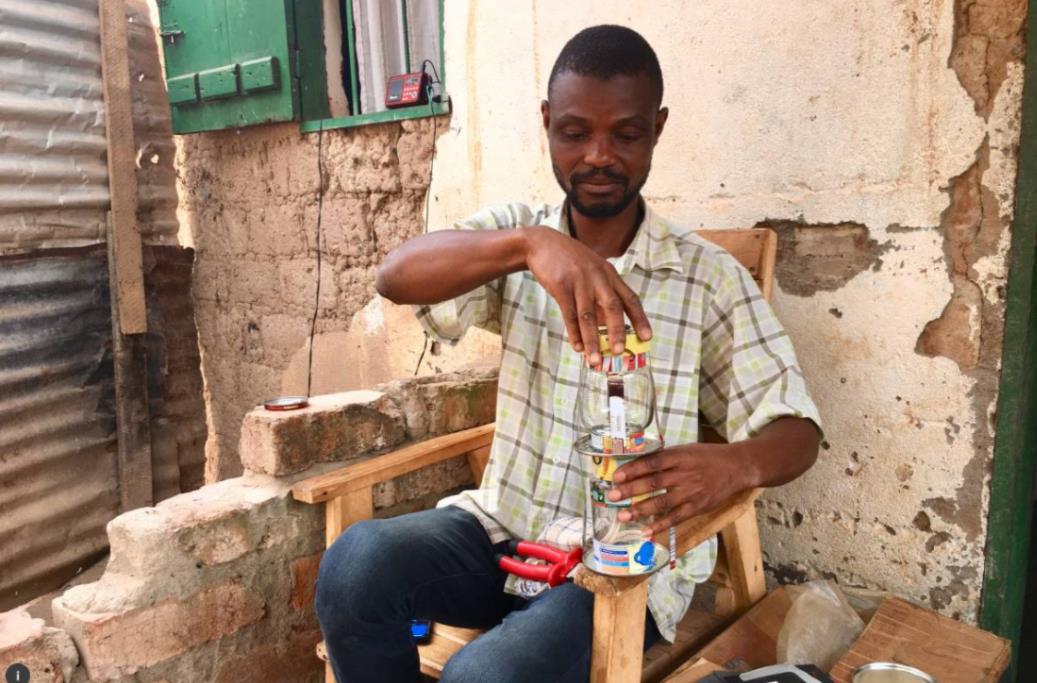Frugal Innovation for Sustainable Global Development (LDE)
Minor code: WM-Mi-191
This minor provides for a multidisciplinary learning environment, bringing together students from Leiden University, TU Delft and Erasmus University Rotterdam. In the minor you will critically explore how and under which conditions frugal innovation can contribute to sustainable global transformation processes that serve both people and planet. We provide a unique opportunity to combine theory, practice and societal engagement during challenge-based field assignment abroad or in the Netherlands.
Faculty of Technology, Policy and Management
ECs: 30
Start: September
Language: English
Maximum participants: 40
| Non-selection minor: | |
| Selection minor: | |
| Criteria: |
Applications have to be submitted via EduXchange in the period 15 May until 31 May together with a Background and Commitment Form and submit your CV to minorfrugalinnovation@asc.leidenuniv.nl.
For whom?
Applications are open to final year Bachelor's students from Leiden University, TU Delft and Erasmus University Rotterdam, who are interested in this emerging field of study, regardless of study and disciplinary background. This minor especially targets students who want to link their study with tackling concrete societal challenges.
In general, students who are up for a multidisciplinary challenge and see the mutual benefit of integrating social, entrepreneurial and technological knowledge and skills are encouraged to apply. We are looking for a diversity of interests and backgrounds, to ensure active cross-disciplinary interaction.
What will you learn?
In this minor you will critically explore and investigate frugal innovation discourses and its ascribed potentials. You will not only discover the various narratives on frugal innovation, you will also apply your knowledge in practice through a field assignment during which you will work with a multidisciplinary team on a real life frugal innovation challenge. This assignment allows you to combine (part of) your own study background with the knowledge and skills you acquired during the first part of the minor. Underpinning both the theoretical and practical parts of the minor is a Justice, Equity, Diversity and Inclusion (JEDI) lens. This involves an exploration into the intersectionality between academia, practice, and the various contexts involved. Similarly, the minor will equip you with further skills for the world after university in terms of navigating uncertainty, the art of asking and questioning, negotiating, building trust, and interviewing. It will also help nurture team working capacities, for transformative change is the sum of the efforts of individuals working and leveraging within collectives.
-
Both academics and policy makers increasingly see frugal innovation as a promising way to overcome constraints in, for example, (access to) health, energy water, and food, by and for people worldwide. It could possibly contribute to global societal challenges and themes, for example sustainability, reduction of poverty and inclusion. Frugal innovations can be found across the globe, ranging from informal urban and rural settlements and communities to industrial complexes. Multiple actors are involved, including national governments and international organisations, multinational enterprises, non-governmental organisations (NGOs), maker movements, and innovators at grassroots level.

Course overview
In the minor you will critically explore the widely acclaimed potential of frugal innovation to contribute to processes of local and global sustainable transformation that could benefit people and planet. You will study frugal innovation through various lenses, such as development, technology and entrepreneurship, which will familiarise you with the current academic and policy debates on frugal innovation.
-
Courses:
- FI for Development (4 ECTS)
- FI and Technology (3 ECTS)
- FI and Entrepreneurship (3 ECTS)
- Bootcamp (5 ECTS)
These courses combine literature study with class tutorials and discussions, guest lectures by practitioners, case studies, laboratory work, and excursions.
-
Courses:
- Bootcamp (continued) (5 ECTS)
- FI in Practice (15 ECTS)
In FI on Practice you will apply your knowledge during a challenge-based field assignment engaged in real life research on and/or design and development of a frugal innovation. The field assignment allows you to combine your own study background with the knowledge and skills you acquired in the theoretical part of the minor. Examples of previous field assignments can found in the International Centre for Frugal Innovation in Africa website.
These field assignments relate to the domains within the International Centre for Frugal Innovation which, among others, include water, energy, health, agro-food, and urban living environments. Students will work on assignments that can be research or more practically oriented. Divided into multidisciplinary teams of three or four, ideally with one student from each participating university (Leiden, Delft, Erasmus), students bring together and integrate their knowledge base with that of the others.
All groups will focus and work towards an intervention activity which will be decided between the student groups, the organisations within the challenge and the minor team.The field assignments take place between November 2022 and January 2023. The field assignment is done in a multidisciplinary group of three or four students. From a diverse list of challenges , you can indicate your interest before the minor commences, but in consultation with the field assignment providers, the minor coordination team will decide upon the final allocation and group compositions.
The field assignment can be conducted abroad, in the Netherlands or a combination of these. The options to travel will be determined though by Leiden University as specified on their Health and Safety website.When going abroad, you have to cover the costs for the field assignment yourself. These include among others, travel costs including a return flight ticket, visa and vaccinations, accommodation and living expenses. Based on past experiences the minimum cost of a field assignment abroad amounts to 2,500-3,000 euro. We will guide and inform you as much as possible on subsidies and grants available to cover at least part of these expenses.
For more detailed course descriptions, please visit the Leiden e-prospectus
Register for this minor
The minor has a layered admission procedure. A maximum of 40 students (equally distributed among the three LDE universities) will be admitted, and to allow for disciplinary diversity an equal distribution among disciplines will be aimed for.
Further information regarding the structure and application process for this minor can be found in Leiden e-prospectus and the Leiden Minor site.
Don’t forget to Complete the Background and Commitment Form and submit your CV to minorfrugalinnovation@asc.leidenuniv.nl.
Student stories
Join us during one of our online information sessions. Click here to view the dates and times.
Contact details

Andre Leliveld
